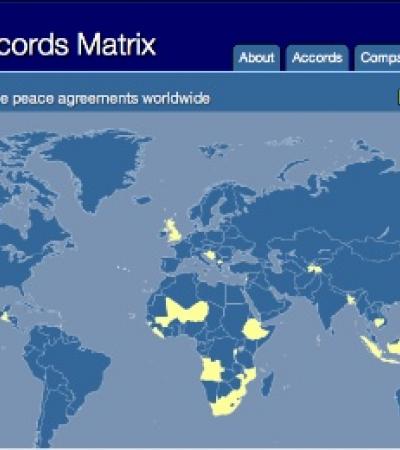The Peace Accords Matrix project (PAM) provides practitioners, policy-makers, and researchers with comparative information on the content, design and implementation outcomes of peace accords in both qualitative and quantitative form. The database presents time series data on the implementation of 51 provisions in 34 comprehensive peace agreements negotiated in civil wars since 1989. The status of implementation is scored for up to ten years following the signing of each agreement. The data provide insights into the types of provisions that are more or less likely to be implemented, how implementation processes unfold over time and relate to one another, and how the degree of implementation affects post-accord outcomes.
The session will include a presentation of the new PAM website, which has been redesigned to facilitate comparative analysis of peace agreements and implementation outcomes.
The session will include a presentation byPAM researchers Madhav Joshi and Jason Quinn, with additional comments from DavidCortright and Laurel Stone. The presentation will provide guidance on navigating the site and will illustrate various potential uses of the data. It will include an outline of the PAM coding methodology and case selection criteria.
Participants in the March 5 session are encouraged to bring laptops, tablets or smart phones to access and use the database during the presentation.
Cosponsored with the Kroc Institute for International Peace Studies

